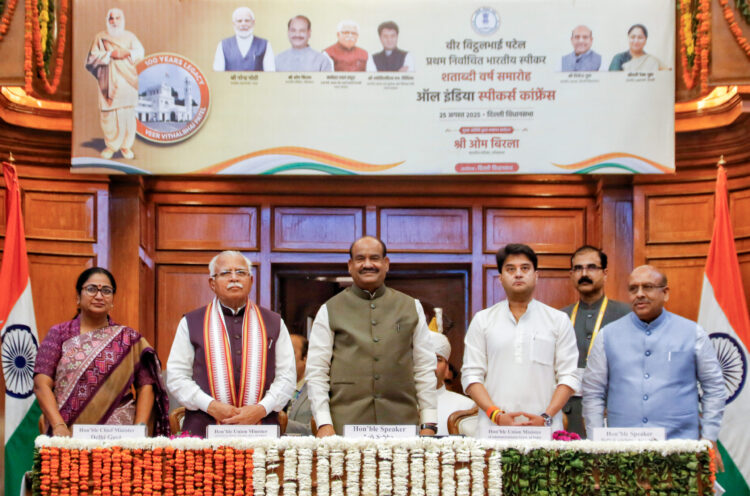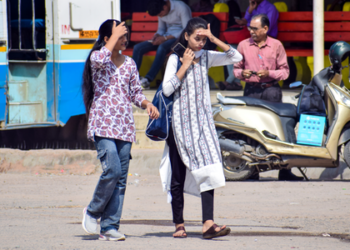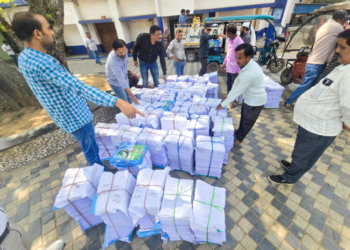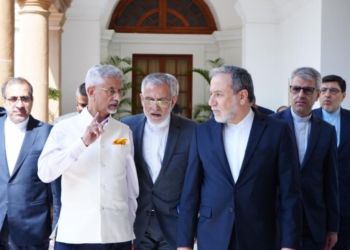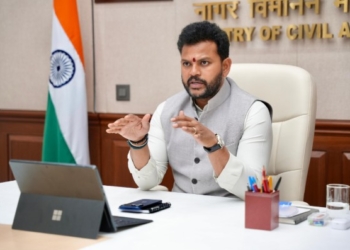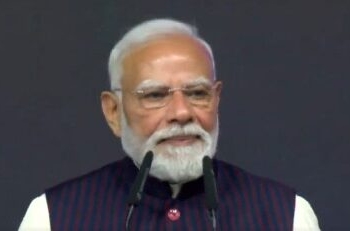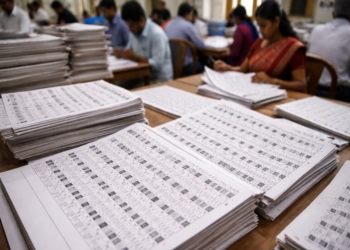New Delhi: Lok Sabha Speaker Om Birla on Monday described legislatures as institutions that voice the democratic spirit of people, reminding that freedom of expression in them must always be exercised responsibly and within parliamentary propriety.
Addressing the Valedictory Session of the All India Speakers’ Conference 2025, a two-day conclave held at the Delhi Assembly, Birla said legislatures today must meet citizens’ expectations by ensuring transparency, accountability, and efficiency in law-making.
He also paid rich tribute to Vitthalbhai Patel, who was elected as the first Indian Speaker of the Central Legislative Assembly in 1925.
“Legislatures are not merely buildings of brick and stone; they are living institutions that embody the voice, aspirations, and democratic spirit of the people,” said Birla.
He noted that Patel’s impartiality, fairness, and steadfastness laid the foundation of democratic accountability, a legacy which continues to guide presiding officers across the country even a century later.
Speakers, Deputy Speakers, legislators, and Secretaries of Legislative Assemblies and Councils from across 30 states of the country were also present.
On this occasion, a documentary film was unveiled, featuring narration by National Award-winning actor Anupam Kher.
The film traced the inspiring life of Vithalbhai Patel and chronicled the historic journey of the Delhi Legislative Assembly as a cradle of India’s parliamentary democracy.
Union Minister Manohar Lal Khattar underlined the historic significance of the Delhi Assembly, noting that Patel’s leadership laid down values of impartiality and accountability which remain relevant even today.
He emphasised that while governments may change, the duty of presiding officers to uphold decorum, fairness, and dignity is unchanging.
Khattar also highlighted the transformative role of technology, IT systems, and artificial intelligence in governance.
Drawing from his experience in Haryana, he cited initiatives like Parivar Pehchan Patra and CM Window, which brought services, pensions, and welfare schemes directly to citizens’ homes, reducing bureaucratic delays and saving both time and resources.
Union Minister of Communications Jyotiraditya Scindia carried the discussion forward by reflecting on India’s democratic journey.
He described India as the true “Mother of Democracy,” rooted not in borrowed traditions but in centuries of deliberation and sacrifice.
Scindia recalled that this very Assembly witnessed the voices of freedom fighters and great leaders who shaped the nation’s parliamentary path.
Highlighting the G20’s recognition of India’s inclusive democratic model, he noted that India demonstrates how governance can function effectively at the scale of 1.4 billion citizens.
He also commended the Delhi Legislative Assembly for pioneering innovations such as the National e-Vidhan Application (NeVA) and renewable energy projects like the 500 KW solar power plant, and urged the youth to carry forward this legacy with responsibility as India moves towards its vision of 2047.
The session was also attended by Delhi Chief Minister Rekha Gupta, Speaker of Delhi Legislative Assembly Vijender Gupta, Deputy Speaker of Delhi Legislative Assembly Mohan Singh Bisht and PWD Minister Parvesh Verma.
(IANS)




